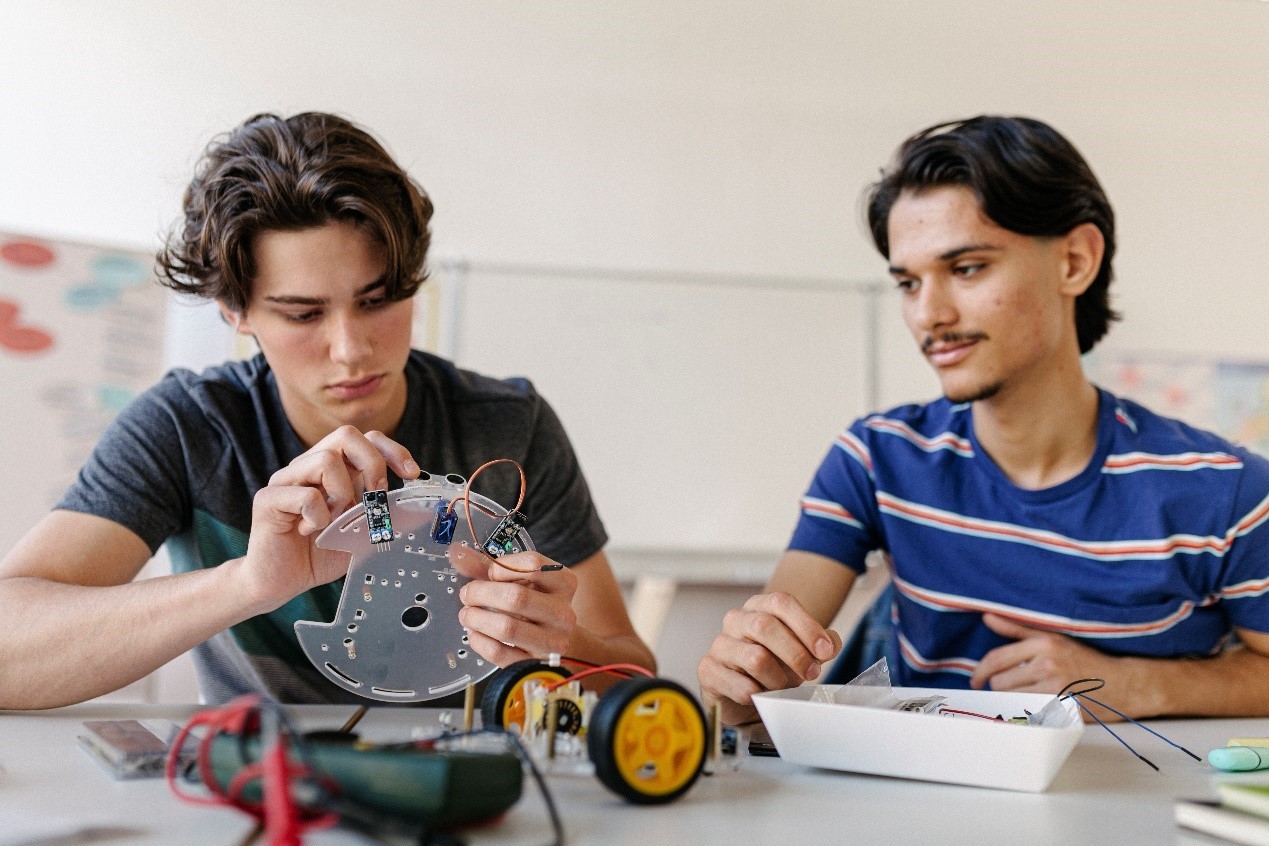Preparing Young People for an AI-Driven World
AI is seeing huge investment and is at the forefront of new policies and initiatives across the world. How can we empower the generation that are growing up in our increasingly AI-driven world?
Alan Harper
2 October 2023
With the widespread adoption of artificial intelligence in numerous sectors worldwide, many careers are becoming increasingly dependent upon competencies that haven’t existed in the past. Now more than ever, students need to be equipped with the right technical skills to ensure strong career prospects and security in such ever-evolving markets. Unfortunately, the pace of these sectors has resulted in a lack of inappropriate resources for students, particularly in science, technology, engineering, and mathematics (STEM). AIQ are working to address this by transforming schools’ AI and technology curriculums and supporting educators in introducing these concepts to young learners.
Artificial intelligence is an increasingly global interest, with International Data Corporation estimating that global spending on AI will double to over $110 billion in 2024. Nations across the Middle East represent a vital part of this interest, as they invest in automation technologies to drive growth in productivity across the region. UAE’s National Strategy for AI 2031 aims to improve sectors from transport and education to healthcare and renewable energies. KSA’s Vision 2030 aims to utilise AI and data to reduce its economic dependencies through diversification. Dr Abdullah bin Sharaf Alghamdi, president of the Saudi Data and AI Authority, aims to “lead a knowledge-based economy” where AI development and intelligent data analysis will be vital. PwC estimates that Egypt will contribute 7.7% of its GDP (roughly $42.7 billion) toward AI development and implementation in 2030. A similar figure, $4.5 billion, is expected from the combined investments of Bahrain, Kuwait, Oman, and Qatar, also in 2030.
This multinational investment in artificial intelligence is bringing significant opportunities for future workforces. However, it also provides new challenges, as there has never been a greater need to provide a robust AI- and technology-related curriculum in education. Future workforces need to be modernised to meet the demands of an increasingly technological workplace. However, schools and educators face a real challenge when it comes to supporting this new generation of learners. Young people have heard of artificial intelligence before, and terms like Machine Learning, Programming and Neural Networks are not unique. But they have little understanding of what is truly involved. Innovation is needed to help young people realise the value of these critical fields and see how these skills are vital in their future careers. In addition, they need to see just how widespread AI has become and how it is utilised in numerous sectors, even those that may not appear relevant.
AIQ are meeting these challenges by offering learners across the MENA region access to educational programmes that have been expertly developed and curated. We have partnered with schools to deliver tailored courses, lessons, and tests that encourage young people to discover the exciting world of artificial intelligence technologies. Our goal is to improve the relevance of these cutting-edge fields within education and inspire children to become the next generation of specialists in the numerous sectors that artificial intelligence will impact over the coming decades.




